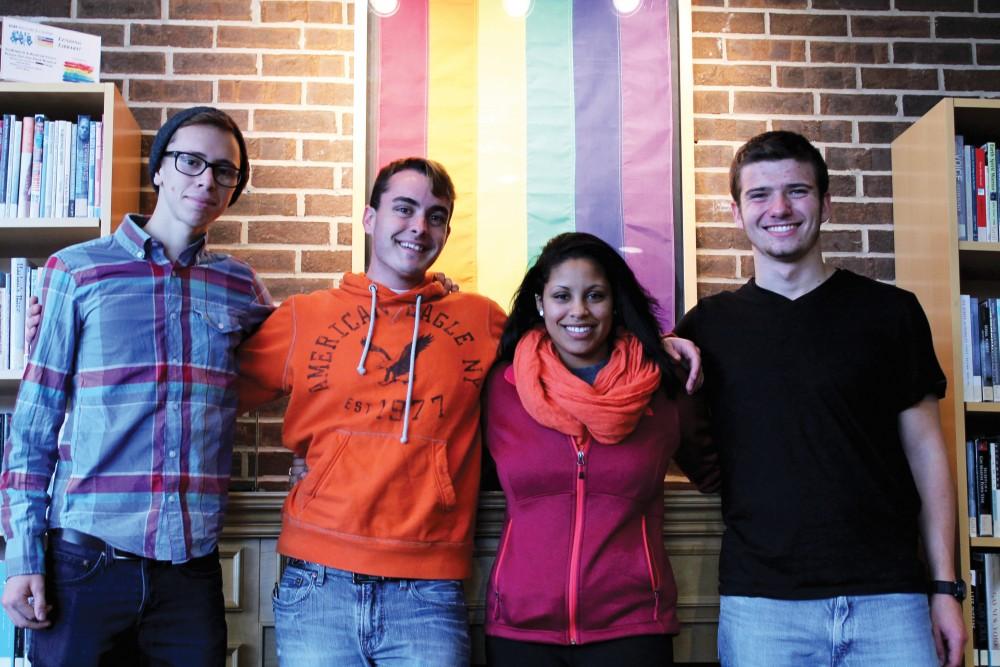Program advocates support for LGBT students at GV

GVL / Emily Frye Brody Cragg (left), Sean Diaz (left center), Annika Gray (right center), and Levi Ryfiak (right)
Feb 4, 2016
When faced with adversity, people often band together to take a stand. However, some voices are not easily heard or represented. To bring awareness to marginalization and inequality on campus, the first step begins with providing support.
On Feb. 12 at Grand Valley State University, the Milton E. Ford LGBT Resource Center will offer a program to teach students concepts of gender and sexuality.
From 1 p.m. to 3 p.m., students can take action to learn strategies on becoming an influential ally to the lesbian, gay, bisexual and transgender (LGBT) community. The “Queer and Trans 101: A Training for Allies” program examines heterosexual and cisgender privilege, and teach allies how to take action against inequality.
An ally is defined as a heterosexual or cisgender person who supports gender equality and LGBT social movements.
Marla Wick, assistant director of the LGBT Resource Center, said the first step to supporting equality within the community is by generating more awareness. She said the sessions give students the tools to think critically about LGBT related issues.
“We all have a collective stake in making the world and our campus more inclusive and welcoming to everyone,” Wick said. “In the training, we talk about basic concepts related to gender and sexuality. There are a lot of issues at the local, state and national level that could use more support.”
While most people know about marriage equality, Wick said some individuals may not realize that discrimination against LGBT people for employment and housing is legal in Michigan. She said broader issues will be discussed during the session, as they provide ways to enact change.
Scott Burden, graduate assistant at the LGBT Resource Center, said the program is geared more towards students, but anyone from GVSU is welcome to participate. The focus, he said is creating a safe climate on campus for these individuals.
“People should go if they care about justice,” Burden said. “Also, if they care about what it means to support LGBT people at GVSU. They should go if they care to participate in creating safer spaces and climate on campus.”
Education on how to support LGBT individuals is vital, Burden said, as the matter of support can mean life or death.
“Rates of psychological distress and suicide within the LGBT community are significantly higher than non-LGBT people,” he said. “If an ally can create a safer space by being intentional through their actions or words, it could save a life.
“I can ensure that it will at least make people feel more comfortable and safe.”
The LGBT Resource Center offers a space for people to gather, Wick said as it also provides several programs to meet the needs of both LGBT students and the broader campus community.
“We support a number of student groups that combine educational content with community-building,” she said, “and we advocate for institutional changes to improve the lives of queer and transgender people on campus.”
The Training for Allies is LIB 100/201 approved. In addition, another session is offered April 8, from 2 p.m. to 4 p.m.
“One of the biggest barriers to people developing good ally support skills is a lack of understanding,” Wick said. “Our program is one way of how we hope to address this deficit. A lot of progress has been made, but we still have a long way to go.”
Students must register on OrgSync for the event.





















